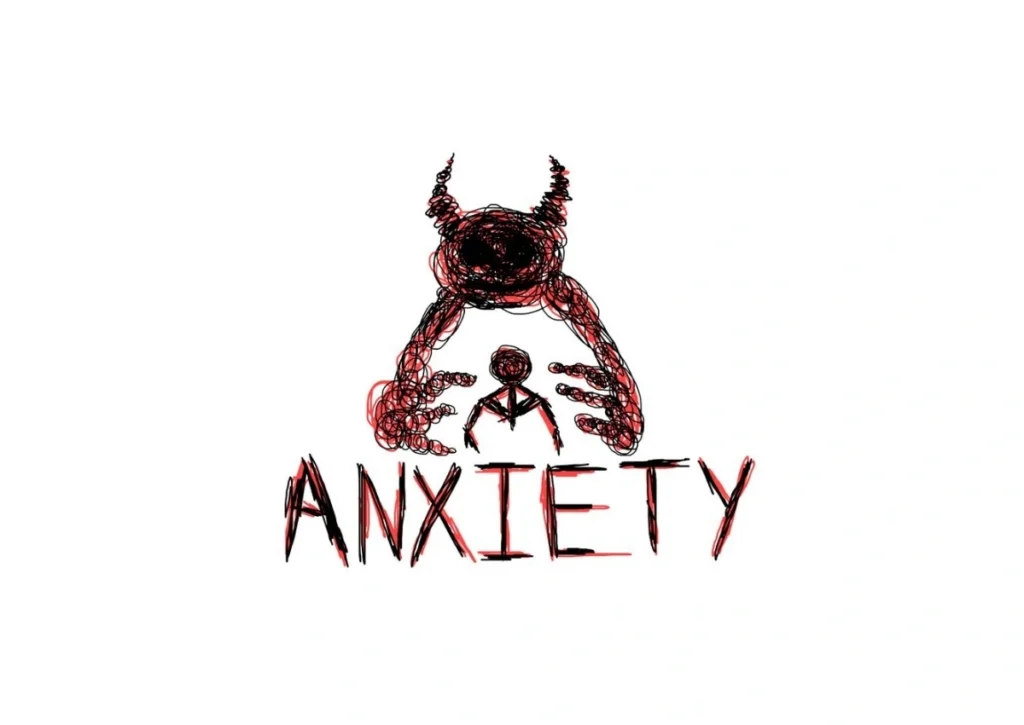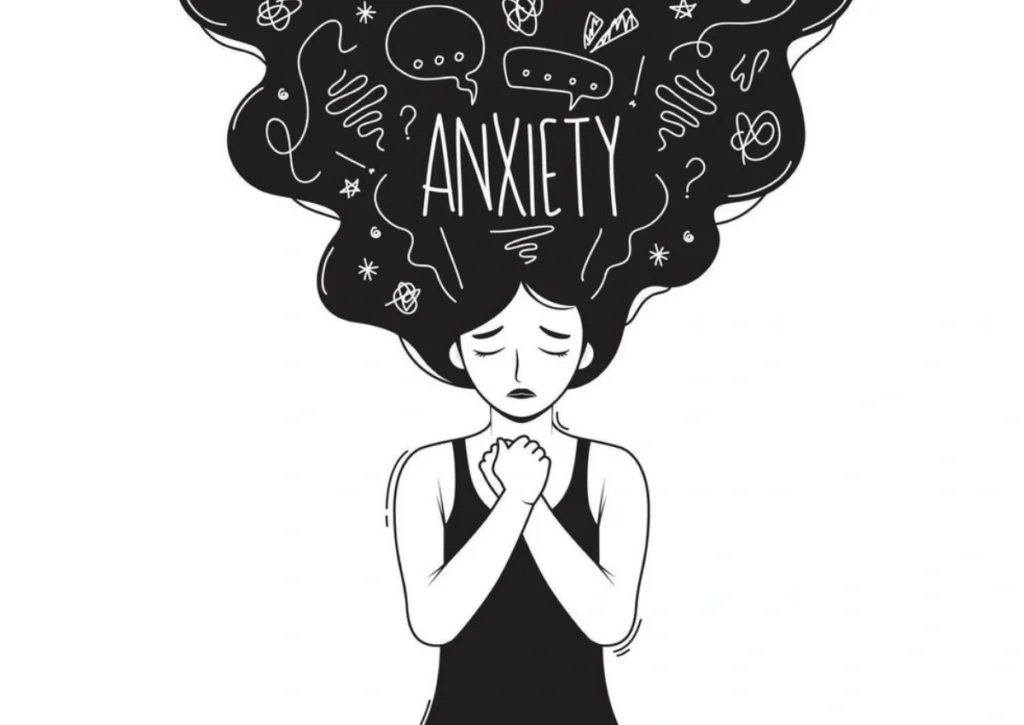
The mere thought of ‘exams’ can trigger a cascade of physical and emotional responses in most students. Racing heart, sweaty palms, churning stomach, mind that suddenly goes blank – this is the all too familiar face of exam stress. Though some pressure is a healthy motivator, pushing us to do our best, for millions of students this stress turns into crippling exam anxiety. It’s a harsh irony where the fear of failure can undermine performance, ensnaring students in a self-defeating spiral of anxiety and poor results.
What if you could escape this loop? What if you could turn that immobilizing terror into a rideable swell of adrenaline, a concentration that crystallizes instead of washes out? This guide provides a comprehensive approach to mastering, preparing for, and managing exam stress. What if by mixing strategic preparation with powerful mind-body hacks and self-care you learned to traverse the stresses of exams with a newfound calm, confidence, and poise — transforming your anxiety, in other words, from an adversary into a weapon?

Exam Anxiety, What a Buddy
Anxiety at its essence is your body’s primal “fight or flight” response. When you take exams, your brain sees the stakes and pressure as a threat, inundating your system with stress hormones such as adrenaline and cortisol.
It’s important to distinguish healthy exam stress (or ‘eustress’) from crippling exam anxiety (distress). Normal stress can hone your attention, compel you to study, and boost performance. It’s the sense of excitement and slight anxiety that makes you sharp. Debilitating anxiety is an uncontrollable emotional and physical reaction that prevents you from thinking clearly, remembering information, and performing at your best.
Symptoms of debilitating exam anxiety:
Physical: Heart palpitations, breathlessness, sweating, tremors, nausea, stomach cramps, headaches, muscle tension, dizziness, and lightheadedness. Terror, panic, dread, irritability, helplessness, overwhelm, and weepiness.
Mental/Cognitive: “Blanking out” or mind going completely blank, trouble concentrating, memory recall issues, negative self-talk (“I’m going to fail,” “I’m not smart enough”), catastrophic thinking (imagining the worst-case scenario), trouble organizing thoughts.
Behavioral: Study avoidance, agitation, fidgeting, nail biting, pacing, insomnia, or too much sleep, loss or increase of appetite.
Exam anxiety is typically triggered by a mixture of things:

Fear of Failure – The weight of the world on your shoulders to do well, whether that’s from yourself, your parents, or society. How much is the exam ‘worth’ in terms of the future (college admission, career, etc)?
Past bad experiences: If you’ve ever frozen or bombed an exam before, then it can be a self-fulfilling prophecy.
Not being prepared is a sure road to nerves, although even well-prepared students can feel the same. Contrasting yourself with high-achieving peers.
The exam anxiety is that it encourages a self-fulfilling cycle. Anxiety causes you to perform poorly, which causes you to have more anxiety about the next exam. The secret to overcoming exam stress is to disrupt this cycle aggressively by treating it at every level.
Pre-exam strategies: constructing a calm fortress
The fight with exam anxiety is usually decided long before you walk into the examination hall. Sustained advance planning and proactive self-care develop a fortress of confidence and calm.
Tame Your Study Habits: The Definitive Stress Slayer The most effective single method to tamp down exam anxiety is to actually feel prepared.
Effective Planning & Realistic Scheduling: Don’t just cram. Design a sensible study plan that divides big subjects into small pieces. Assign times for different topics and follow through. Over-scheduling = overwhelmed.
Active Recall & Spaced Repetition: Instead of just re-reading notes, actively test yourself. Flashcards, self-quizzing, pretending to teach it to a studio audience — these things cement your knowledge. Go back and review material over time (spaced repetition) to help it stay in your long-term memory and simultaneously to alleviate your fear of forgetting.
Practice Exams & Mock Tests: This is crucial. Mimic the real test situation (timed, silent) This gets you used to the style, reveals vulnerabilities, teaches you how to time yourself, and defangs the unfamiliarity on exam day. So examine your errors.
If you’re unsure, don’t let it stew. Consult your professors, advisors, or a savvy peer. Clearing confusion builds confidence.
Prevent burnout by switching up your study techniques. Alternate between reading, writing, listening to lectures, and group study.
How to Manage Anxiety

Prioritize Self-Care: Your Body & Mind are Interconnected Your physical and mental well-being directly impacts your ability to manage stress.
Sleep hygiene, non-negotiable. Sleep deprivation is a serious worry amplifier. Sleep 7-9 hours a night, particularly in the days before your exam. Maintain a regular sleep schedule, cultivate a dark, cool, and quiet sleep environment, and reduce screen exposure at least an hour before bed.
The right diet gives your brain the reliable fuel and nutrients it needs to sparkle. Stay away from excess caffeine, sugar-laden snacks and overly processed foods that will cause you energy slumps and increased anxiety. Keep yourself well hydrated.
Exercise is a potent anti-stress weapon. It releases endorphins, the body’s own natural mood elevators, and lowers stress hormones. Even a brisk walk, a quick jog, or some yoga can dissipate nervous energy and clear your head.
Breaks & Downtime: Your brain needs breaks to consolidate information and prevent burnout. Take frequent mini-breaks when you study. Do something fun, that’s not study-related, to really switch off and recharge.
Mindfulness & Meditation: Frequent practice (even 5-10 minutes) can train your mind to stay calm, observe anxious musings nonjudgmentally, and refocus to the here-and-now. Use guided meditations (via apps like Calm or Headspace) or just do deep breathing, every day.
Develop a Growth Mentality
Your inner voice matters. Your mind can be your best friend or worst enemy.
Challenge self-defeating talk — catch self-defeating thoughts (“I’m going to fail”, “I’m unworthy”). Try them out. (I’ve worked, I’ll work my ass off, I’m got) Take a few minutes each day to picture yourself breezing through the exam, recalling information with ease and a huge smile of satisfaction afterwards.
Redirect your attention from the anxiety of failure, to the joy of trying and discovering. Celebrate the strides, embrace the errors, and attempt to disassociate from the perfectionist grind.
Positive affirmations – Tell yourself something positive every day like, “I’m ready,” “I can do this,” or “My brain is fresh.”
Reach out to supportive peers/mentors – speak with friends, family or mentors who can offer encouragement and provide perspective. Steer clear of crowds that stir panic or over-competitive benchmarking.
Plan Logistics
Remove the Unknowns Take some of the pre-exam butterflies out of your stomach by having everything organized.
Know all the exam details: double check the precise date, time, location, length, permitted materials (pens, calculator, ID, water bottle, etc), and any special instructions.
Lay it all out the night before – your outfit, your backpack with pencils, student ID, water and a ‘Mom’ approved snack. This avoids the panicked cramming session on exam morning.
Know Your Route

If you don’t know where the exam venue is, figure out your travel route and give yourself lots of extra time for traffic or other delays.
Steer clear of this late-night cramming before your test. Trust your training. A well-rested, sleep-hungry brain can perform much more than
During the Exam: Grounding & Focus
Even with great preparation, nerves can still raise their ugly heads during the exam. These in-the-moment tips help you remain calm and centered.
1. Arrive Early & Settle In:
Arrive at the exam location early. Don’t hurry, which immediately increases stress. Get to your seat, spread out your materials, and take a few languid, deep breaths before the exam actually gets started. Look around, normalize the scene.
2. The Brain Dump (If You’ll Let Me):
If allowed, as soon as you get the exam paper (and before reading questions) rapidly scribble down any major formulas, mnemonics, dates, or other specific facts that you’re concerned about forgetting. This alleviates stress by offloading information from your working memory and by killing the terror of freezing.
3. Preview your entire exam:
Before responding to anything, scan the exam paper for a minute or two. Pay attention to how many questions there are, how much they’re worth, and which are easy “warm-up” questions or absolutely brutal.
Design a time budget. This provides you with a feeling of control and minimizes the element of surprise.
4. Deep Breathing: Your New Best Friend in the Exam Room
If you sense panic building, your mind blanking or your heart pounding, stop. Close your eyes (just for a moment, if you like), and take 3-5 slow, deep belly breaths. Breathe in through your nose for 4, hold for 7, and exhale slowly (audible whoosh) through your mouth for 8. That triggers your parasympathetic nervous system, which tells your body that it’s okay to relax.
Employ this method between problems, prior to a hard passage, or any time you feel frustrated.
5. Positive Self-Talk & Reframing:
Coax yourself with affirmations: “I can do this.” One question at a time. It’s alright if I don’t know all of it, I’ll excel in what I do know.
The more your interests and passions overlap with the people you’re trying to reach.
If you get a question you don’t know, don’t panic and dwell on it. “I’ll skip to something I know and return to this later.” More often than not, the solution will present itself once your worries have subsided.
6. Stick to what you know.
Begin with the ones you’re most confident about. This creates momentum, confidence, and warms your brain up.
Don’t bog down on one hard question for too long. If you’re struggling – flag it and come back to it. You can always come back to it if you have time.
7. Time Management Yourself
Adhere to your time estimate for each section/question.
Wear a watch (if permitted) to stay on time. Don’t spend too much time perfecting an answer at the cost of others.
8. Physical Grounding Strategies
If you’re feeling lightheaded, disconnected, or panicky, use your senses to ground yourself.
Dig your heels into the ground. Since the chair is supporting you. Observe the pen in your hand. Survey the room and pick out objects.
Quickly stretch your neck or shoulders (if it doesn’t bother other people).
9. Stay Hydrated & Fuelled (if allowed):
Take little sips of water during the exam. Dehydration may worsen your cognitive fog and anxiety.
If permitted, a mild, non-distracting snack (such as some nuts or a banana) can assist in keeping blood sugar and attention stable.
10. No Comparison:
Concentrate just on your own paper. Don’t glance at your peers to see what they’re doing, how fast they’re writing, or if they look confident. How fast or effortless their is in no way a reflection on your capability.
After the exam— Learn and Move On.
The exam is not really done until you’ve processed it and learned from the experience.
Respect your hustle: regardless of the result, you showed up, you prepared, you left nothing on the table. Rejoice in that work. You made it!
Once the test is over, it’s over. Don’t immediately obsess about which you might have gotten wrong, or do extended “post-mortems” with friends that fan the anxiety. Give your thoughts a rest!
Take a Lesson From the Experience Later, when results arrive or when you’re emotionally prepared, reflect productively. What study tips clicked? What could you make better for next time? Did your anxiety control methods work? What deserves more practice?
Do something relaxing. Catch up with friends, pick up a hobby, see a film, or work out. Give yourself clear moments to decompress.
Find Feedback (Productively): When exam grades arrive, examine them, not for grade, but for education. Know where you screwed up but don’t beat yourself up over it.
If exam anxiety remains overwhelming, is affecting your life in other significant ways, or is accompanied by severe physical symptoms, seek professional assistance. A school counselor, therapist, or psychologist can provide specific strategies, CBT, or other interventions to help you control your anxiety.
Wrap-up
Exam anxiety is a common problem, but it’s not unmanageable. By knowing how it works, and by aggressively attacking it with a multi-pronged strategy, one that includes detailed preparation, regular self-care, and moment-to-moment coping techniques, you can greatly lessen its hold.
Also check:- Your Guide to Naturally Managing Stress
Keep in mind, this is a path that needs patience, practice, and self-compassion. Every test is a learning experience, not just in terms of the material but in terms of your own mettle. With commitment, you can turn exam anxiety from a debilitating dread into a harnessable power, enabling you to enter tests with a relaxed spirit, sharp concentration, and the presence of mind to actually show what you know and accomplish the score you’re worth.




